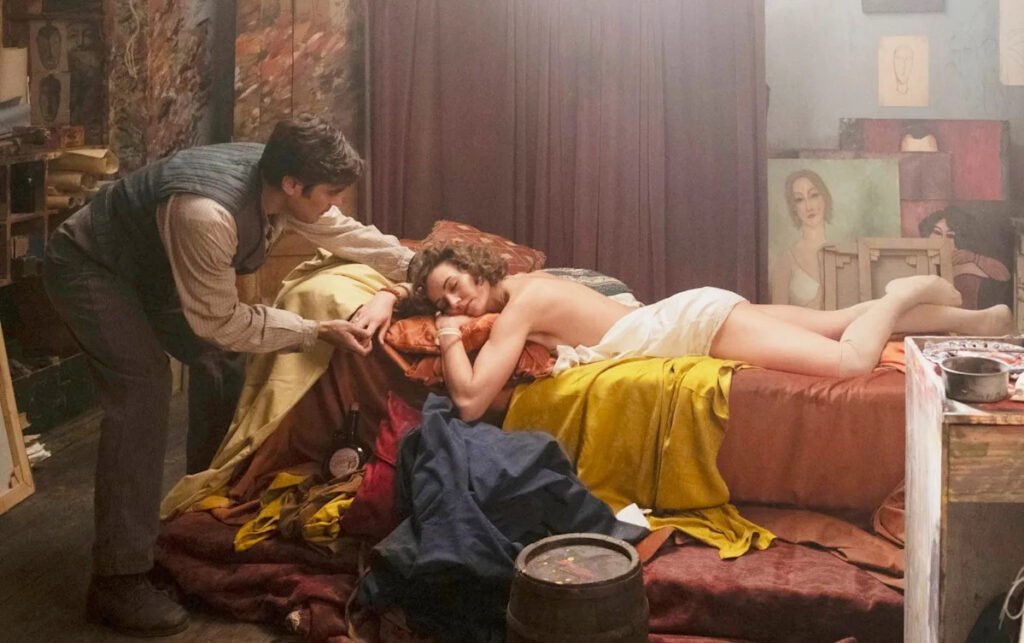Johnny Depp does not appear in his mangy biopic of Modigliani (Three Days on the Wing of Madness) which is undoubtedly for the best. At 62, he’s far too old to be playing the now-legendary Italian artist, who died of tubercular meningitis in Paris, aged 35, in 1920, unloved by the French art establishment or practically anybody else.
Even if things were otherwise, Depp-as-Modigliani might have been a gruesome prospect. The film (based on a 1980 play by Dennis McIntyre) follows the artist across three days of a hell-raising bender in 1916, abusing every substance and person within reach. Such a role is not the kind of comeback, after Depp’s infamous legal battles with Amber Heard and sacking from the Fantastic Beasts franchise, that anyone would deem prudent.
Instead, Depp directed this enervating portrait – the first time he’s tackled a feature since his ill-fated 1997 collaboration with Marlon Brando, The Brave. He certainly brings an auteur personality to this picture. In the first scene, Riccardo Scamarcio’s lusty Modigliani goads the customers in a Parisian bistro, uses a baguette as a lewd phallic prop, leaps on a trolley, and smashes out through a stained-glass window – a seemingly fictitious incident.
Whatever kinship Depp may feel with this tortured, misunderstood, and regularly blotto artist is expressed, unfortunately, as a string of gruelling clichés. He seems most interested in depicting the bohemian art scene as one big pit of squalor, with painters urinating openly in the streets and rich patrons holding their noses. While this may be fundamentally accurate, it doesn’t make for penetrating insights into the soul of our protagonist, nor for a viewing experience to cherish.

Actor and lead: Riccardo Scamarcio and Johnny Depp at the film’s London premiere – Alberto Pezzali/Invision/AP
Depp’s wrangling of the supporting cast, who speak English with some squawkingly exaggerated accents, is so over-indulgent it would be cruel to name and shame his accomplices. But there are, thankfully, two honourable exceptions. As the famous Polish art dealer Léopold Zborowski, Adolescence star Stephen Graham finds a soft, placatory register that makes his scenes a safe haven.
Meanwhile, Depp’s old Donnie Brasco sparring partner, Al Pacino has one long seated rendezvous in a restaurant, playing the art collector Maurice Gangnat. With his wily technique, Pacino manages to coax the film out of its stupor for 15 good minutes. He’s patronisingly chummy with Modigliani while hiding his gaze from the paintings, scrabbling around in a lemon meringue pie for distraction. “You are not a painter – you are a sculptor!”, he announces, dishing out unsolicited advice with a ladle.
The scene has the rigour, clarity and credible acting – from Scamarcio, too – that so much of Depp’s film otherwise lacks. Even afterwards, he finds solid gambits on which to end, giving us the closing image of an untouched block of plaster, and the tormented artist, who has set his work and his life on fire, starting again from scratch.
If this is Depp’s mission statement for career renewal, it may be hidden away under a great pile of steaming filth – but there we have it.
15 cert, 108mins. In UK cinemas from July 11

